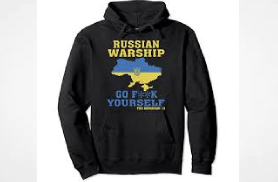JD Supra
Sweden wants trademark;
Ukraine wants to own a phrase.
What can they protect?
Traditionally, trademarks are used to indicate the source of consumer goods and services – from Coca-Cola soft drinks to Apple computers to Jiffy-Lube oil change shops and iTunes music downloads.
A trademark can cover a company name, a product or service name, and even things like:
- the iconic shape of the packaging (like the curvy shape of the Coca-Cola bottle),
- the color of the product (like Owens Corning pink insulation), and even
- sounds associated with a product or service (like the roar of the MGM lion).
But can a COUNTRY or other governmental entity register and protect a trademark?
On November 13, Sweden announced that it will be the first country to try to trademark its own name.
According to the Visit Sweden website,
Sweden is making a bold (and slightly cheeky) move to trademark its name, putting an end to travel mix-ups. The home of cinnamon rolls and fika has applied to the European Union Intellectual Property Office (EUIPO) to protect its name from international duplicates that might confuse unsuspecting travellers who want to experience the original Sweden and is calling on people around the world to support its application via an online petition.
The country has also issued a cute YouTube video to support its application.
According to the tongue-in-cheek video, there are at least eight other places in the world called Sweden—many of them in North America.
Susanne Anderson, CEO of Visit Sweden, says that the “real” Sweden is distinguished by its “lakes, islands, forests, and the world’s best flat-pack furniture.”
But is it really possible for a country to trademark its name?
A few years ago, as World Trademark Review reported,
The Icelandic Ministry for Foreign Affairs filed an invalidation motion against the British supermarket chain Iceland. The cases involve an invalidity request made inter alia, and deal with the alleged descriptiveness and non-distinctiveness of the figurative and word marks in relation to a range of goods and services in Classes 7, 11, 16, 29, 30, 31, 32 and 35. Both trademarks were invalidated by the Cancellation Division.
As the article notes,
Country names can hold powerful branding power, and nations may use their own names for economic and cultural benefit. Country names can however be vulnerable to misappropriation and exploitation by entities that have no connection with them.
What about trademarks claimed by a governmental entity within a country?
As Politico recently reported,
The Court of Justice of the European Union ruled Wednesday that the slogan “Russian warship, go f**k yourself” cannot be claimed by Ukraine as an EU trademark.
The accidental war slogan was at the center of a heated trademark battle between Ukraine’s State Border Guard and the European Union Intellectual Property Office (EUIPO).
The phrase was first coined in the early days of Russia’s invasion of Ukraine in 2022. A Ukrainian soldier responded with the phrase to a Russian warship’s demand that soldiers defending Ukraine’s Snake Island surrender.
The phrase has since become symbolic of Ukraine’s resistance against Russian aggression.
Ukraine argued that the phrase should belong to Kyiv, to avoid anyone else trademarking and profiting off the slogan. Commercial products featuring variations of the phrase have been widely sold online.
However,
according to the EU’s General Court, the phrase — which Kyiv attempted to trademark in Russian and English — “is not perceived as an indication of commercial origin,” accepting the argument of the EU’s intellectual property enforcers, who claimed late last year that the slogan did not meet the requirements to become a trademark.
Just like the haiku above, we like to keep our posts short and sweet. Hopefully, you found this bite-sized information helpful.
Source: https://www.jdsupra.com/legalnews/patent-poetry-can-countries-own-6129065/




